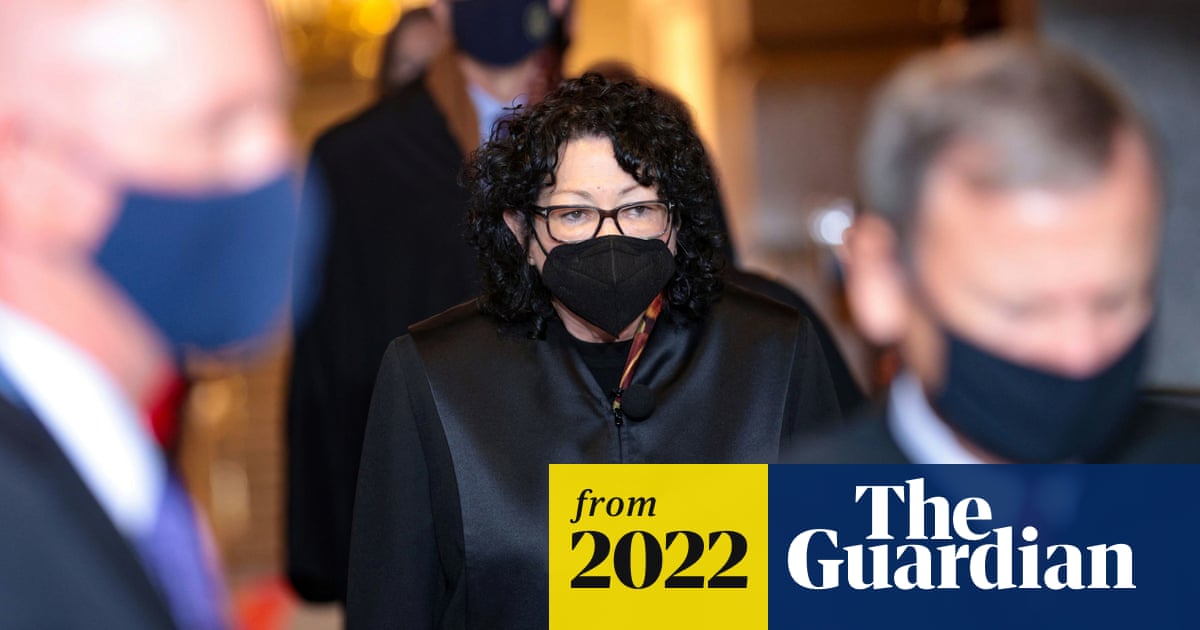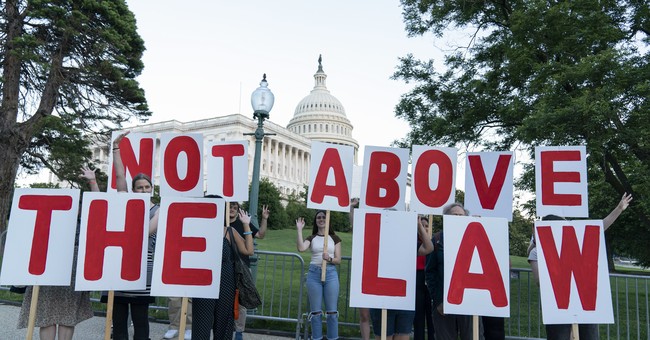PoliticalChic
Diamond Member
1. Nearly a century has gone by under the thumb of those who hate the creation of America. In 1937, the bigot/racist who was President, nominateed KKKer Hugo Black to the Supreme Court, and he promplty inserted exactly what any Marxist 'prayed' for: the elimination of religion form the American scene.
2. And here is the source of Hugo Black’s use of the phrase ‘separation of church and state,’ his office in the Ku Klux Klan.
Hugo Black's anti-Catholic bias, which showed up in his actions on the Supreme Court:
"... Black was head of new members for the largest Klan cell in the South. New members of the KKK had to pledge their allegiance to the “eternal separation of Church and State.”... Separation was a crucial part of the KKK’s jurisprudential agenda. It was included in the Klansman’s Creed..."
Hugo Black and the real history of "the wall of separation between church and state"
3. There is nothing in our founding documents that indicates that, and, in fact, the Declaration of Independence there are four references to ‘Divine’ … 1)in first paragraph ‘Laws of Nature and of Nature’s God,’
2) next paragraph ‘endowed by their Creator,”
3) Supreme Judge of the world, and
4) ‘divine’ Providence, last paragraph.
This is important because our historic documents memorialize a government based on individuals born with inalienable rights, by, in various references, by the Divine, or Nature’s God, or their Creator, or the Supreme Judge, or divine Providence.
4. The first amendment makes clear that religion should not, can not, be excluded from American life.
5. In its most recent decision, the Supreme Court has put religion back in American life.
"Sotomayor accuses supreme court conservatives of dismantling church-state separation
Liberal justice delivers warning after ruling that state of Maine cannot exclude religious schools from tuition programme
The liberal justice Sonia Sotomayor has warned that the US supreme court is dismantling the wall between church and state, after the conservative majority ruled that the state of Maine cannot exclude religious schools from a tuition programme.
In a dissent to the ruling in Carson v Makin, released on Tuesday, Sotomayor wrote: “This court continues to dismantle the wall of separation between church and state that the framers fought to build.
“… In just a few years, the court has upended constitutional doctrine, shifting from a rule that permits states to decline to fund religious organisations to one that requires states in many circumstances to subsidise religious indoctrination with taxpayer dollars.”
Progressives fear other rulings due this month, among them a case set to bring down Roe v Wade, the 1973 ruling which established the right to abortion, and a ruling on a New York law set to loosen gun regulations even after several horrific mass shootings."

 www.theguardian.com
www.theguardian.com
2. And here is the source of Hugo Black’s use of the phrase ‘separation of church and state,’ his office in the Ku Klux Klan.
Hugo Black's anti-Catholic bias, which showed up in his actions on the Supreme Court:
"... Black was head of new members for the largest Klan cell in the South. New members of the KKK had to pledge their allegiance to the “eternal separation of Church and State.”... Separation was a crucial part of the KKK’s jurisprudential agenda. It was included in the Klansman’s Creed..."
Hugo Black and the real history of "the wall of separation between church and state"
3. There is nothing in our founding documents that indicates that, and, in fact, the Declaration of Independence there are four references to ‘Divine’ … 1)in first paragraph ‘Laws of Nature and of Nature’s God,’
2) next paragraph ‘endowed by their Creator,”
3) Supreme Judge of the world, and
4) ‘divine’ Providence, last paragraph.
This is important because our historic documents memorialize a government based on individuals born with inalienable rights, by, in various references, by the Divine, or Nature’s God, or their Creator, or the Supreme Judge, or divine Providence.
4. The first amendment makes clear that religion should not, can not, be excluded from American life.
5. In its most recent decision, the Supreme Court has put religion back in American life.
"Sotomayor accuses supreme court conservatives of dismantling church-state separation
Liberal justice delivers warning after ruling that state of Maine cannot exclude religious schools from tuition programme
The liberal justice Sonia Sotomayor has warned that the US supreme court is dismantling the wall between church and state, after the conservative majority ruled that the state of Maine cannot exclude religious schools from a tuition programme.
In a dissent to the ruling in Carson v Makin, released on Tuesday, Sotomayor wrote: “This court continues to dismantle the wall of separation between church and state that the framers fought to build.
“… In just a few years, the court has upended constitutional doctrine, shifting from a rule that permits states to decline to fund religious organisations to one that requires states in many circumstances to subsidise religious indoctrination with taxpayer dollars.”
Progressives fear other rulings due this month, among them a case set to bring down Roe v Wade, the 1973 ruling which established the right to abortion, and a ruling on a New York law set to loosen gun regulations even after several horrific mass shootings."

Sotomayor accuses supreme court conservatives of dismantling church-state separation
Liberal justice delivers warning after ruling that state of Maine cannot exclude religious schools from tuition programme
